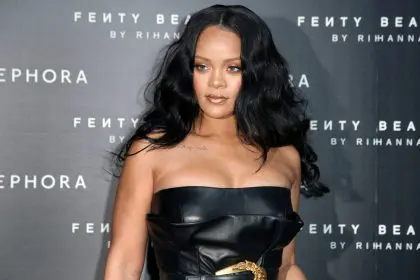Jamelia is gearing up for a music comeback after returning to the studio. The British singer is set to make her long-awaited return to the music scene after taking time away to focus on her family.
The ‘Superstar’ singer admitted she is “absolutely” returning to music after the mother-of-four was inspired to make new tunes by her daughter Teja, 23. Her hit “Superstar” became one of her signature songs internationally and helped establish her as a prominent voice in British R&B.
“Absolutely, I’ve been in the studio,” she quizzed on Hits Radio if she will make a music comeback. Hits Radio broadcasts across the UK and features interviews with many returning and established artists throughout the year.
“At the end of last year my eldest daughter was just like, ‘You know, Mummy, I just need to know, what are you doing? Why are you not releasing music?'” This candid family conversation became the catalyst for Jamelia’s musical revival after years away from releasing new material.
“I was like, ‘I don’t know. Maybe I’ll go back into the studio’.” The singer’s honest response reflects the uncertainty many artists feel when contemplating a return after an extended hiatus from the industry.
Jamelia – who has daughter Teja, 23, with ex Terry Wallen, and Tiani, 19, with ex-husband Darren Byfield, as well as True, seven, and Jream, two, with another man – has “absolutely loved” being back in the studio, and she is planning to drop new tunes later in 2025. Her diverse family life has provided rich material for her songwriting process during this comeback phase.
“At the beginning of this year I went back in, and I was like, ‘Maybe she’s right.'” The recording sessions mark a significant turning point in her career trajectory, with many fans eagerly anticipating her new musical direction.
“I’ve absolutely loved it and I’m gearing up to release some music this year.” Industry observers note that artists returning after extended breaks often bring fresh perspectives and renewed creative energy to their work.
Jamelia signed for Capitol Records aged just 15 years old, and nearly 30 years later she is hoping to bring some “wisdom and life experience” to her new tunes. Her early start in the music industry gave her a unique perspective on fame at a young age.
“I think making music at this point in my life… I’m 44, so to bring my wisdom and life experience has been incredible.” This mature perspective marks a significant evolution from her earlier work, allowing for more depth and personal truth in her songwriting.
Jamelia departed Capitol Records for Parlophone – a branch of EMI – after her first single failed to chart. This career transition proved crucial for her development as an artist and helped shape her subsequent successes.
But she had a breakthrough with song ‘Money‘, which peaked at number five in the UK Singles Chart. The track established her as a rising star in British R&B and launched her into mainstream recognition across Europe.
Jamelia recently told how her daughter inspired her to push back against her “hypersexualized “persona”. This personal growth reflects her evolution as both an artist and a mother throughout her career.
“There’s this idea that if you’re an R+B singer, a black woman, you need to have this hypersexualized persona. And I was fighting against that so much,” she recalled speaking on the ‘We Need To Talk’ podcast with Paul C Brunson. The conversation highlighted the industry pressures faced by female artists throughout her career.
“I definitely fell into that at first and I loved the attention.” This candid admission shows her willingness to reflect honestly on her past choices and industry experiences.
“If you look at pictures at the beginning of my career I was in trainers and baggy trousers, like Aaliyah, that was my vibe.” Her reference to Aaliyah shows the influences that shaped her early artistic identity before industry pressures took hold.
“For me at that age, like 22, 23, to be seen as sexy, was like ‘Oh my gosh, me?’ So I definitely fell into it and lapped it up.” Her reflection demonstrates how young artists often navigate complex identity questions while in the public eye.
“So when they suggested shorter skirts, and I mean like really short, I was on ‘Top of the Pops’ and my bottom was on ‘Top of the Pops.'” This anecdote illustrates the specific pressures female artists faced regarding image and presentation in the music industry of that era.















